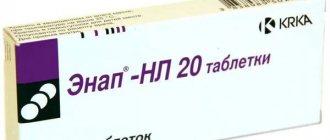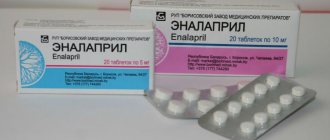Home | About us | Delivery | Advertisers | Login | Registration
- Medicines
- dietary supplementsVitamins
- Categories from A to Z
- Brands from A to Z
- Products from A to Z
- Medical equipment
- beauty
- Child
- Care
- Honey products appointments
- Herbs and herbal teas
- Medical nutrition
- Journey
- Making medicinesStock
Pharmacy online is the best pharmacy in Almaty, delivering medicines to Almaty. An online pharmacy or online pharmacy provides the following types of services: delivery of medicines, medicines to your home. Online pharmacy Almaty or online pharmacy Almaty delivers medicines to your home, as well as home delivery of medicines in Almaty.
my basket
Apteka84.kz is an online pharmacy that offers its customers medicines, medicinal and decorative cosmetics, dietary supplements, vitamins, baby food, intimate products for adults, medical equipment and thousands of other medical and cosmetic products at low prices. All data presented on the Apteka84.kz website is for informational purposes only and is not a substitute for professional medical care. Apteka84.kz strongly recommends that you carefully read the instructions for use contained in each package of medicines and other products. If you currently have any symptoms of the disease, you should seek help from a doctor. You should always tell your doctor or pharmacist about all the medicines you take. If you feel you need further help, please consult your local pharmacist or contact our GP online or by telephone.
© 2021 Pharmacy 84.
Amprilan®
Before starting treatment with Amprilan®, it is necessary to eliminate hyponatremia and hypovolemia. In patients who have previously taken diuretics, it is necessary to discontinue them or at least reduce their dose 2-3 days before starting Amprilan® (in this case, the condition of patients with CHF should be carefully monitored due to the possibility of decompensation in them with an increase in BCC).
After taking the first dose of the drug, as well as when increasing its dose and/or the dose of diuretics (especially loop diuretics), it is necessary to ensure careful medical monitoring of the patient for at least 8 hours in order to timely take appropriate measures in the event of a pronounced decrease in blood pressure. If Amprilan® is used for the first time or at a high dose in patients with increased RAAS activity, their blood pressure should be carefully monitored, especially at the beginning of treatment, since these patients have an increased risk of a pronounced decrease in blood pressure (see section “With caution”) .
In case of malignant arterial hypertension and heart failure, especially in the acute stage of myocardial infarction, treatment with Amprilan® should only be started in a hospital setting.
In patients with CHF, taking the drug can lead to the development of a pronounced decrease in blood pressure, which in some cases is accompanied by oliguria or azotemia and rarely by the development of acute renal failure.
Caution should be exercised when treating elderly patients, as they may be particularly sensitive to ACE inhibitors. at the beginning of therapy, it is recommended to monitor renal function indicators (see also section “Method of administration and dosage”).
In patients for whom a decrease in blood pressure may pose a particular risk (for example, patients with atherosclerotic narrowing of the coronary or cerebral arteries), treatment should be initiated under strict medical supervision. Caution should be exercised during physical activity and/or hot weather due to the risk of increased sweating and dehydration with the development of arterial hypotension due to a decrease in blood volume and a decrease in sodium content in the blood serum.
It is not recommended to drink alcohol during treatment with Amprilan®. Transient arterial hypotension is not a contraindication for continuing treatment after stabilization of blood pressure. If severe arterial hypotension reoccurs, the dose should be reduced or the drug discontinued.
The simultaneous use of Amprilan® with drugs containing aliskiren or ARA II, leading to double blockade of the RAAS, is not recommended due to the risk of a pronounced decrease in blood pressure, the development of hyperkalemia and deterioration of renal function compared with monotherapy.
The simultaneous use of ACE inhibitors with drugs containing aliskiren is contraindicated in patients with diabetes mellitus and/or with moderate to severe renal impairment (GFR less than 60 ml/min/1.73 m2 body surface area) and is not recommended in other patients (see Sections “Contraindications” and “Interaction with other drugs”). The simultaneous use of ACE inhibitors with ARA II is contraindicated in patients with diabetic nephropathy and is not recommended in other patients (see sections “Contraindications” and “Interaction with other drugs”).
In patients treated with ACE inhibitors. Cases of angioedema of the face, extremities, lips, tongue, pharynx or larynx have been observed. If swelling occurs in the face (lips, eyelids) or tongue, or difficulty swallowing or breathing, the patient should immediately stop taking the drug. Angioedema, localized in the area of the tongue, pharynx or larynx (possible symptoms: difficulty swallowing or breathing), can be life-threatening and requires urgent measures to relieve it: subcutaneous administration of 0.3-0.5 mg or intravenous drip of 0.1 mg of epinephrine (adrenaline) (under the control of blood pressure, heart rate and electrocardiogram (ECG) followed by the use of glucocorticosteroids (intravenous, intramuscular or orally); intravenous administration of antihistamines (H1- and H2-histamine receptor antagonists) is also recommended, and in case of insufficiency of inhibitors C1-esterase enzyme, C1-esterase enzyme inhibitors may be considered in addition to epinephrine (adrenaline).The patient should be hospitalized and monitored until symptoms are completely relieved, but for at least 24 hours.
In patients receiving ACE inhibitors, cases of intestinal angioedema, which was manifested by abdominal pain with or without nausea and vomiting, were observed, in some cases, angioedema of the face was also observed simultaneously. If a patient develops the symptoms described above during treatment with ACE inhibitors, the possibility of developing intestinal angioedema should be considered when making a differential diagnosis.
Treatment aimed at desensitization to insect venom (for example, bees, wasps), and concurrent use of ACE inhibitors can initiate anaphylactic and anaphylactoid reactions (for example, marked decrease in blood pressure, shortness of breath, vomiting, allergic skin reactions), which can sometimes be life-threatening . During treatment with ACE inhibitors, hypersensitivity reactions to insect venom (for example, bees, wasps) develop faster and are more severe. If desensitization to insect venom is necessary, the ACE inhibitor should be temporarily replaced with an appropriate drug of a different class.
Life-threatening, rapidly developing anaphylactoid reactions, sometimes leading to shock, have been described with the use of ACE inhibitors during hemodialysis or hemofiltration using certain high-flux membranes (for example, polyacrylonitrile membranes) (see also membrane manufacturer's instructions). The simultaneous use of Amprilan® and the use of this type of membrane, for example, for emergency hemodialysis or hemofiltration, should be avoided. In this case, it is preferable to use other membranes or discontinue ACE inhibitors. Similar reactions were observed with LDL apheresis using dextran sulfate. Therefore, this method should not be used in patients receiving ACE inhibitors. In patients with impaired liver function, the response to treatment with Amprilan® may be either enhanced or weakened. In addition, in patients with severe liver cirrhosis with edema and/or ascites, significant activation of the RAAS is possible, so special care should be taken when treating these patients (see also section "Dosage and Administration").
Monitoring the content of electrolytes in blood plasma
Hyperkalemia
ACE inhibitors may cause hyperkalemia because they inhibit the release of aldosterone. This effect is usually minor in patients with normal renal function. However, in patients with impaired renal function and/or in patients concomitantly taking drugs containing potassium (including potassium-containing salt substitutes), potassium-sparing diuretics, trimethoprim or co-trimoxazole, also known as trimethoprim + sulfamethoxazole, and in particular aldosterone antagonists or ARBs II, hyperkalemia may develop. The risk group for developing hyperkalemia also includes elderly patients (over 70 years of age), patients with decompensated diabetes mellitus or patients in a state of dehydration, patients with acute heart failure, metabolic acidosis.
Potassium-sparing diuretics and ARB II should be used with caution in patients receiving ACE inhibitors, and serum potassium levels and renal function should be regularly monitored (see section "Interaction with other drugs").
Some patients receiving ramipril experienced SNA ADH with subsequent development of hyponatremia. It is recommended to regularly monitor plasma sodium levels in elderly patients and other patients at risk of developing hyponatremia.
Before surgery (including dental surgery), it is necessary to warn the surgeon/anesthesiologist about the use of ACE inhibitors.
It is recommended to carefully monitor newborns whose mothers used ACE inhibitors during pregnancy. to detect arterial hypotension, oliguria and hyperkalemia. In oliguria, it is necessary to maintain blood pressure and renal perfusion by administering appropriate fluids and vasoconstrictors. These neonates are at risk of developing oliguria and neurological disorders, possibly due to reduced renal and cerebral blood flow due to the reduction in blood pressure caused by ACE inhibitors.
Cough
When using the drug Amprilan®, a dry, unproductive, prolonged cough may occur, which disappears after stopping the use of ACE inhibitors (including ramipril), which must be taken into account in the differential diagnosis of cough during the use of an ACE inhibitor.
Ethnic characteristics
The drug Amprilan®, like other ACE inhibitors. has a less pronounced antihypertensive effect in patients of the Negroid race compared to representatives of other races.
Amprilan® should be prescribed with caution to patients of the Black race due to a higher risk of developing angioedema.
Patients after kidney transplantation
There is insufficient experience with the use of ramipril in patients who have recently undergone kidney transplantation.
Monitoring laboratory parameters before and during treatment with Amprilan
®
(up to 1 time per month in the first 3-6 months of treatment)
Monitoring kidney function (determining serum creatinine concentrations)
When treating with ACE inhibitors, it is recommended to monitor renal function in the first weeks of treatment and subsequently. Particularly careful monitoring is required in patients with acute heart failure and CHF, impaired renal function, after kidney transplantation, patients with renovascular diseases, including patients with hemodynamically significant unilateral renal artery stenosis in the presence of two kidneys (in such patients, even a slight increase in serum creatinine concentration may be indicator of decreased kidney function).
Monitoring of hematological parameters (hemoglobin, number of leukocytes, erythrocytes, platelets, leukocyte formula)
It is recommended to monitor the complete blood count to identify possible leukopenia. More regular monitoring is recommended at the beginning of treatment and in patients with impaired renal function, as well as in patients with connective tissue diseases or in patients simultaneously receiving other drugs that can change the peripheral blood picture (see section "Interaction with other drugs") . Monitoring the number of leukocytes is necessary for the early detection of leukopenia, which is especially important in patients with an increased risk of its development, as well as at the first signs of infection. If neutropenia is detected (the number of neutrophils is less than 2000/μl), discontinuation of treatment with ACE inhibitors is required.
If symptoms due to leukopenia appear (for example, fever, swollen lymph nodes, tonsillitis), urgent monitoring of the peripheral blood picture is necessary. If signs of bleeding appear (tiny petechiae, red-brown rashes on the skin and mucous membranes), monitoring the number of platelets in the peripheral blood is also necessary.
Determination of the activity of “liver” enzymes, the concentration of bilirubin in blood serum
If jaundice or a significant increase in the activity of liver enzymes in the blood plasma appears, treatment with Amprilan® should be stopped and medical supervision of the patient should be provided.
Special information on excipients
Amprilan® contains lactose and is therefore contraindicated in patients with lactose intolerance, lactase deficiency or glucose-galactose malabsorption syndrome.





